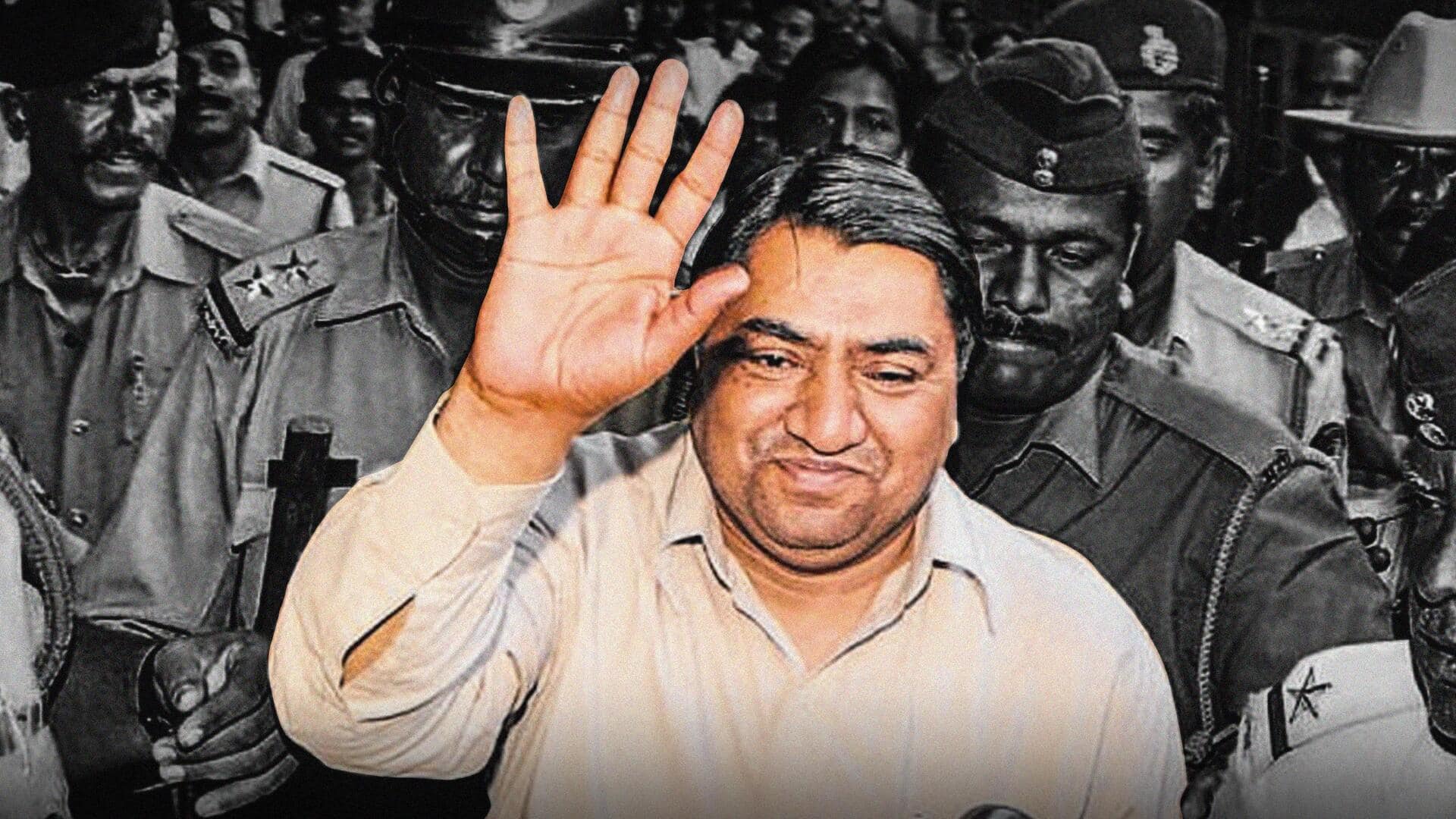
Who was scamster Abdul Karim Telgi, inspiration behind 'Scam 2003'
What's the story
Following the phenomenal success of Scam 1992, director Hansal Mehta is set to return soon with the second chapter in his Scam series—Scam 2003: The Telgi Story. Its recently unveiled teaser highlighted the tale of another scamster who amassed fortunes by masterminding a fake stamp paper scam. As the excitement around Scam 2003 builds, here's everything about Abdul Karim Telgi, who inspired the series.
Context
Why does this story matter?
Helmed by Mehta and Tushar Hiranandani, Scam 2003 draws inspiration from the Hindi book Reporter Ki Diary—penned by journalist Sanjay Singh—who exposed this scam back in time. Notably, Marathi writer Kiran Yadnyopavit has collaborated with Singh for the show's development. Produced by Applause Entertainment in association with StudioNEXT, this gripping series is set to premiere on September 2 on SonyLIV.
Twitter Post
In case you haven't seen teaser, watch it here
Life mein aage badhna hai toh…
— Hansal Mehta (@mehtahansal) August 5, 2023
Here’s the #Scam2003 teaser. Produced by @ApplauseSocial and @SPNStudioNEXT and directed by Tushar Hiranandani this is a tale of our times told in a most entertaining manner. Streaming September 2, 2023 on @SonyLIV. Trailer out soon. pic.twitter.com/2PJZDax86y
Early life
Telgi: Fruit seller-turned-counterfeiter
Born in Khanapur, Karnataka, Telgi reportedly belonged to a lower-middle-class family. After losing his father—who worked as a Khanapur Railway Station porter—Telgi was responsible for supporting his family and simultaneously financing his education. After earning his living as a fruit seller initially, Telgi went to Saudi Arabia, reported The Quint. But he soon returned to Mumbai and began working as a travel agent.
Illegal activities
Telgi's illegal activities led to arrest in 1991
Telgi delved into the dark world of crime after starting a travel agency where he sold fake immigration documents to laborers seeking opportunities in Gulf countries. After his scam was exposed, his illegal activities reportedly led to his arrest in 1991 on charges of forgery and cheating. Following his release from prison, he again got involved in another racket—this time in a bigger scam.
How it all started?
Telgi met Ram Ratan Soni, while in detention for forgery
Reportedly, Telgi met Ram Ratan Soni—a government stamp vendor—while he was in detention for forgery. Subsequently, Soni recruited Telgi to sell stamp papers for a commission, but they parted ways in 1995. Telgi recognized the high demand and limited supply of stamp papers and began counterfeiting them. Thereafter, Telgi also acquired decommissioned printing machines from Nashik Security Press to produce fake stamp papers.
Activities
How did Telgi expand his illegal business?
Over the course of six to seven years, Telgi continued to acquire more machines to expand his illicit operation. "The result was that the stamp papers printed by Telgi were real in spite of not being real," a senior police officer reportedly noted. The scam reached new heights when Telgi assembled over 300 agents who actively sought out institutions in need of stamp papers.
Exposed
Telgi's scam was exposed in 2000
The magnitude of Telgi's stamp paper scam was astounding—estimated to be Rs. 30,000cr. It came to light in 2000 when police caught two of Telgi's agents transporting his counterfeit stamp papers. Their interrogation led cops to Telgi—resulting in his arrest from Ajmer in 2001. In 2007, he was sentenced to 30 years of imprisonment, but he died in 2017 due to multiple organ failure.